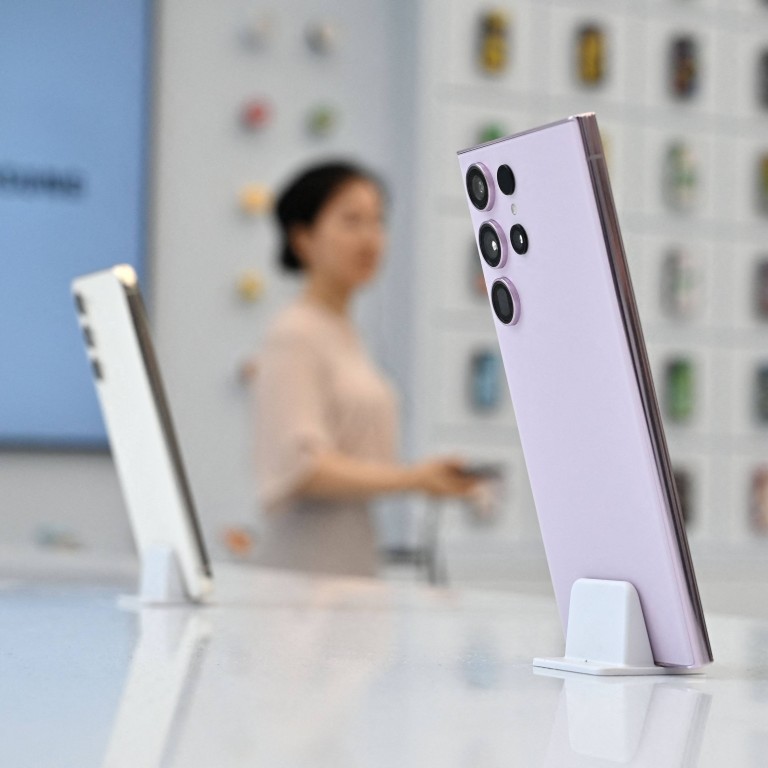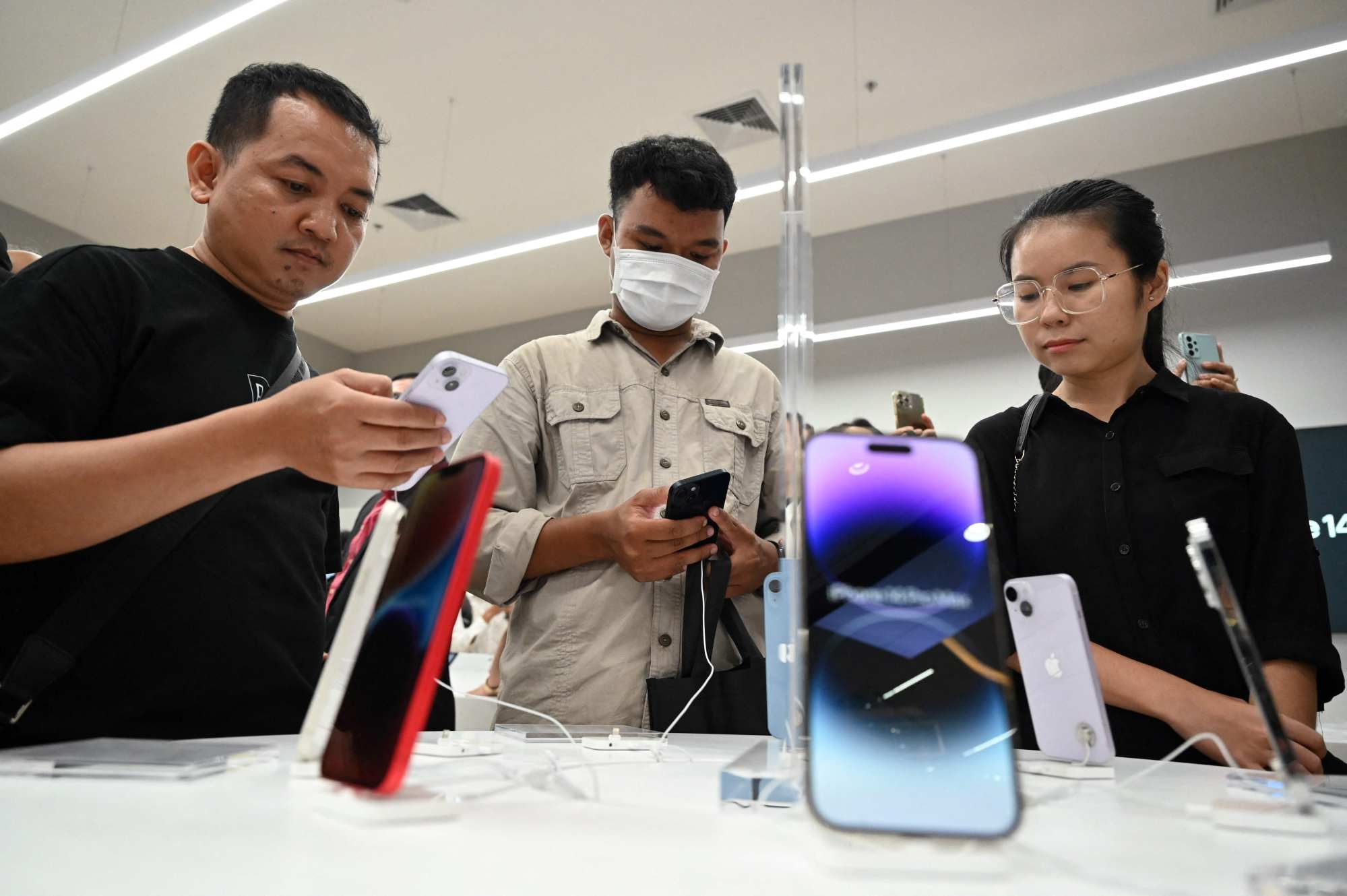
Samsung and Apple top global smartphone market in second quarter, while headwinds hit Xiaomi as industry’s worldwide sales continue to decline
- Samsung topped overall industry sales in the second quarter with a 22 per cent share, while Apple recorded a 17 per cent share in the same period
- Beijing-based Xiaomi kept its No 3 ranking in global smartphone sales with a 12 per cent market share, despite facing headwinds in China and India
Global smartphone sales decreased 8 per cent year on year and 5 per cent quarter on quarter in the three months ended June, it said.
Samsung topped overall industry sales in the second quarter with a 22 per cent share, driven by the strong global performance of its Galaxy A-series smartphones. The South Korean giant, however, saw total sales last quarter fall 12 per cent from the same period last year.

Apple – the world’s most valuable company, with a market capitalisation of US$3 trillion as of Tuesday – recorded its highest-ever second-quarter market share at 17 per cent, according to Counterpoint.
Although Apple’s overall worldwide sales declined 2 per cent last quarter compared to the same period last year, the Cupertino, California-based company’s strength in the premium segment enabled its sales in India, the world’s second-biggest smartphone market behind China, to grow a record 50 per cent in the three months ended June.
The strong sales performance of Samsung and Apple underscored how the global smartphone market’s premium segment, where handsets cost more than US$600 each, has become immune to broader constraints across the industry.
More than one out of five smartphones sold globally during the second quarter belonged to the premium segment, according to Counterpoint. It said the segment was the only one that grew during that period, reaching its highest-ever second-quarter contribution to the overall market.
Apple expands sales reach in China with WeChat online store
The global smartphone market, according to Counterpoint, “now seems to be well past its rapid growth phase”. It indicated that more consumers are holding on to their devices longer amid a slowing economy, which has squeezed the demand for entry-level and mid-market handsets.
Beijing-based Xiaomi, meanwhile, kept its No 3 ranking in global smartphone sales in the second quarter with a 12 per cent market share, but saw a 12 per cent overall decrease in sales worldwide during the period, according to Counterpoint.
“The brand is looking to offset such declines with expansion in other markets and by refreshing its portfolio,” the research firm said.
Smartphone giant Xiaomi pushes bricks-and-mortar retail expansion in India
Still, Counterpoint said it expected the global market “to recover slowly in the coming quarters”. It said smartphone vendors are likely to launch new models in the second half of 2023, which could “attract consumers to replace and upgrade their devices”.

